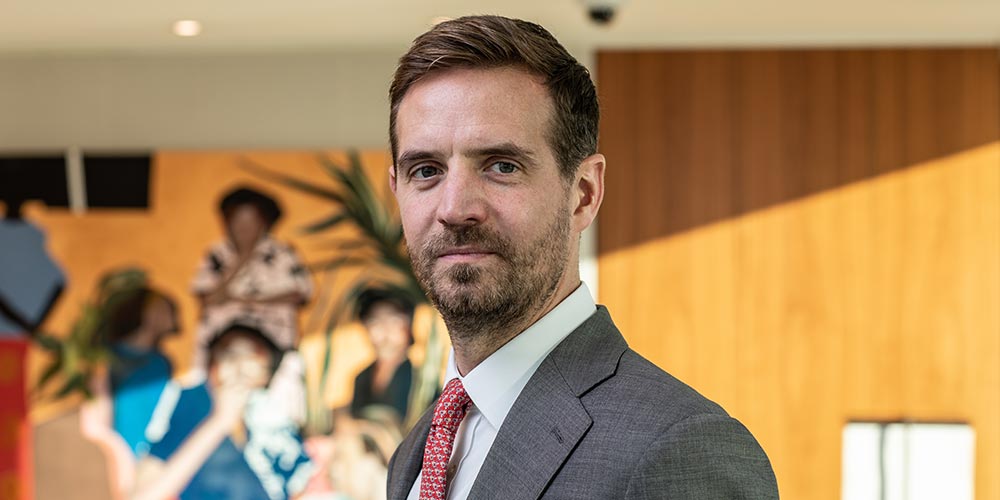The UK is not known for creating great technology companies, but for Guy Anderson, manager of the Mercantile investment trust, the sector is ripe with opportunities.
‘Technology isn’t something with which the UK is usually associated, but looking over the last five years it has consistently been one of the strongest contributors of returns,’ he said.
The UK mid- and small-cap trust has 8.2% in software and computer services stocks, its largest overweight compared to the FTSE All-Share (ex FTSE 100, ex investment companies) index, which has a 3.8% weighting.
When marketplace platform businesses like Auto Trader and Trainline (not categorised as technology stocks but regarded as such by Anderson) are factored in, Mercantile’s exposure is ‘well over 10%’.
Among the trust’s large tech holdings are Softcat, the tenth largest position in an 80-stock portfolio, and Avast, which sits just outside its top 10. Softcat has been owned for more than four years, while Avast is a relatively new addition, having been picked up last September.
Avast is the largest provider of anti-virus software in the world with 435 million users of either its free or paid-for premium version. Its product range also includes an anti-tracker for people concerned about their digital footprint being traceable. The company stands to benefit as consumers concerns over the security and privacy of their digital footprint grow (see box).
Softcat, a value-added distributor of hardware and software to small and medium-sized businesses, has notched up almost 15 years of quarterly organic revenue growth on the back of higher demand for remote network access, cyber security and data storage solutions.
‘The pace of change in technology is so fast that small businesses are increasingly looking to external providers to maximise the value of technology and the efficiency it brings to their businesses,’ said Anderson.
‘Lots of people don’t like IPOs because of the asymmetry of information… Fewer people looking at them presents us with a great opportunity’
Guy Anderson
Great opportunity
Many of Mercantile’s tech-related holdings were bought at IPO – among them Auto Trader in March 2015, Softcat in November 2015 and Trainline in June 2019.
‘Lots of people don’t like IPOs because of the asymmetry of information – the seller knows more than the buyer. Fewer people looking at them presents us with a great opportunity,’ said Anderson, who points to the access to company management teams ahead of a possible or planned flotation afforded by the size of Mercantile, with its £2.38bn of assets, and its fund manager, JP Morgan Asset Management.
IPOs are a rich source of returns for Mercantile. Around 20% of its current portfolio – both by value and number of holdings – are companies bought at IPO.
Its most successful is Fever-Tree, the premium drink mixers manufacturer upon which it made 20 times its money during a five-year holding period. It exited it in 2019, well ahead of its recent lacklustre share price and profit warning. The two main IPOs it participated in last year – Trainline, the pan-European digital rail and coach ticketing platform, and Watches of Switzerland, which distributes over half of the UK’s Rolex watches – are already bearing fruit, having risen by 34% and 40% respectively.
While 2019 was relatively light for IPOs – something that Anderson partly attributes to Brexit uncertainty – 2020 could see a pick-up in activity as sentiment towards UK equities improves and investors return to what has been arguably the least loved global stock market in recent years.
‘UK equities are trading at a 35% discount to the MSCI World index – double the normal discount. There’s a good case for UK equities this year,’ he added.
In the year 2030
Today, the average home has five to 10 internet-connected devices. ‘Over the next decade, that is going to explode and could be 10 times higher,’ said Anderson.
Everything from heating and lighting to domestic appliances such as fridges and washing machines could be connected to the internet and controlled remotely. While that should make it easier and cheaper for us to run our homes, it also stands to enlarge our digital footprints – and the chances of our data being compromised.
For example, inadequate protection of a home security system that is connected to the internet could enable a burglar to unlock your home. Poor data security of an internet-enabled fridge could give a hacker access to your home computer network and everything on it.
Avast, which focuses on data security and data privacy and was recently added to Mercantile investment trust, is well placed to benefit.







